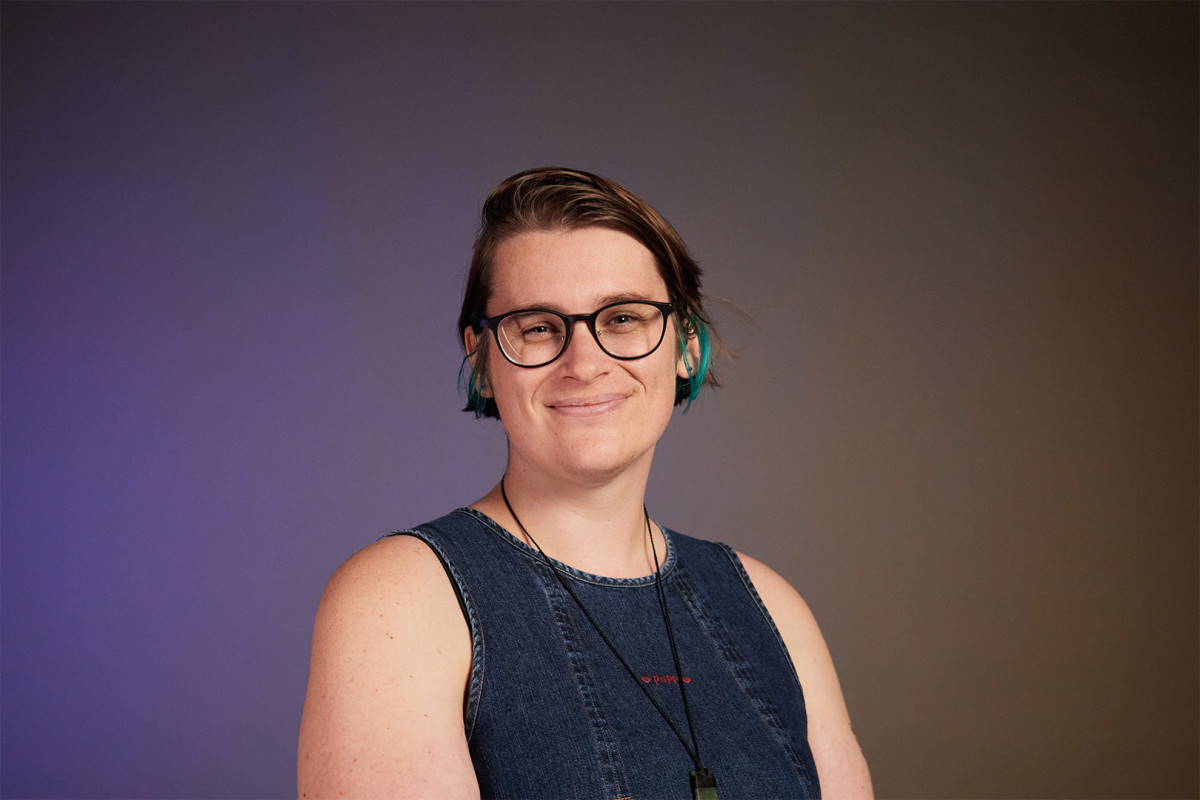Gender dysphoria is listed as a mental disorder in one of the main manuals commonly used by psychologists and psychiatrists. And while a diagnosis based on that manual isn’t the only option for trans people to access gender-affirming care, some experts say classifying dysphoria in a manual of mental disorders creates stigma.
Gender dysphoria is the distress that results from a disparity between the sex a person is assigned at birth, and their gender identity.
Not all trans people experience that distress.
There’s a range of tools psychiatrists and psychologists can use to diagnose gender dysphoria, many of which make clear that it is not a mental disorder.
But one commonly used manual does list it as a mental disorder, and some experts want that to change.
The manual of mental disorders
The Diagnostics and Statistical Manual of Mental Disorders (DSM-5) is a manual commonly used by psychologists and psychiatrists, and it lists gender dysphoria as a mental disorder.
The DSM-5 makes clear not all trans people experience dysphoria, and in order to meet the criteria for diagnosis, it says a person must have “clinically significant distress or impairment in social, occupational, or other important areas of functioning”.
But rainbow clinical psychologist Dr Ilana Seager van Dyk says classifying dysphoria in a manual of mental disorders creates a stigma and can be invalidating of trans people’s experiences.
She instead follows the World Health Organisation’s (WHO) manual of diagnoses.
An alternative diagnosis without the mental health stigma
In 2018, the World Health Organisation removed gender-identity disorder – its version of dysphoria – as a mental health disorder from its International Classification of Diseases and instead classified it as a sexual health condition called “gender incongruence”.
The WHO said evidence shows trans and gender-diverse identities are not conditions of mental ill health and classifying them as such causes enormous stigma.
Seager van Dyk says classifying it as a sexual health condition gives trans and gender-diverse people the same access to gender-affirming healthcare without the mental health stigma attached to it.
“This is a growing view within the psychological field, [that] we shouldn’t pathologise people for the failings of society to support our trans people,” she says.

Rainbow clinical psychologist Dr Ilana Seager van Dyk says we shouldn’t pathologise people “for the failings of society to support our trans people”. Photo: Supplied
Do psychologists and psychiatrists need to strictly follow the DSM-5 to form a diagnosis?
The Royal Australian and New Zealand College of Psychiatrists (RANZCP)’s position statement says while diagnostic manuals like the DSM-5 can be used as tools to assist in making diagnoses, there is no requirement to use them or form a diagnosis based on them.
RANZCP New Zealand chair Dr Hiran Thabrew says being trans or gender diverse is not a mental health condition.
"Psychiatry has a role and responsibility to counter, prevent, and protect against these harms, beginning with taking ongoing professional training in caring for trans and gender diverse people, which includes learning from people’s lived experiences."
Seager van Dyk, who’s also a Massey University Clinical Psychology senior lecturer, says registered psychologists have to demonstrate core competencies laid out by the NZ Psychological Board but the DSM-5 isn’t mentioned anywhere in that document.
“All that said, with my lecturer hat on, we mostly teach DSM-5 to clinical psychology trainees and interns, for example, are not expected to know [WHO’s] criteria,” she says.
Is the DSM-5 diagnosis a requirement for gender-affirming care?
There are a range of other tools that can be used other than the DSM-5.
Health New Zealand’s Dr Sarah Clarke says there’s no national prerequisite for a DSM-5 diagnosis to access gender-affirming healthcare, and access varies by region depending on a person’s needs and the specialists available.
“Clinicians who provide gender-affirming care are required to follow clinical best practice which includes discussion around risks and benefits of medical interventions and follow an informed consent model of care.”
(The informed consent model is where a transgender person’s right to consent to gender-affirming medical treatment is presumed to exist.)
Clarke says Health NZ also commissioned the Professional Association for Transgender Health Aotearoa (PATHA), a small body of experts on trans healthcare, to update the gender-affirming care guidelines.
“[The guidelines] are not mandatory. In most districts or regions they form the basis of clinical pathways. Clinicians who provide gender affirming care are required to follow clinical best practice.”
Not all health professionals up-to-date
Seager van Dyk says not all health professionals are up-to-date with current best practices for trans healthcare and says some still refer patients for a psych consult when it’s not needed.
“[Some patients] have been told by their general practitioner (GP) they can’t access hormone therapy without sign off from a psychologist. That’s simply not true under current best practice guidelines.
“In these cases, I am more likely to do the [psych] evaluation just so that I can reduce this barrier to accessing care for the client.”
‘Navigating a world that doesn’t see you or accept you’
PATHA president Jennifer Shields, who is also the healthcare lead at Qtopia, a Christchurch based organisation supporting rainbow communities, says pathologising “our identities isn’t good full stop.”
“For a long time, gender diversity was seen as something wrong with you or harmful, or something different. The norm was being cis-gender and anything different from that was… potentially harmful.”
She says early stages of research found gender-diverse people have high rates of anxiety and depression and researchers thought it was because of their gender diversity.
“It’s a really harmful and stigmatising way to view just the natural part of human diversity.
“Now we know these rates of depression, anxiety, come from minority stress, like having to navigate a world that doesn’t see you or accept you for who you are.”
Other ways to access care without the dysphoria diagnosis
Shields says PATHA and Qtopia are running a national training programme for GPs and other primary care practitioners, funded by Te Whatu Ora, to support GPs in gender diversity and gender-affirming care.
The key push at the moment, she says, is training GPs to prescribe hormone therapy to adults through the informed consent model, and remove “unnecessary and burdensome referrals”.
“[Currently access to hormone therapy] varies around the country, but usually it’s a readiness assessment by a mental health specialist followed by an appointment with an endocrinology specialist at a hospital. In some places they have specialist gender services.”
Currently the readiness assessment is performed by a mental health specialist and helps determine whether a person is ready to begin gender-affirming care.
Shields says these referrals aren’t funded everywhere, and where they are, “the wait times are extensive”.
PATHA and Qtopia’s training programme for GPs would mean patients would no longer need to see those specialists, as GPs would be able to prescribe directly to patients.
She acknowledges some transgender people value being diagnosed with gender dysphoria or incongruence to make sure gender-affirming care is right for them.

PATHA president Jennifer Shields says they’re running a national training programme to support GPs on gender diversity and gender-affirming care. Photo: Supplied
The healthcare system is “keen to learn and help”
Shields says she was expecting health professionals would be put off by the training because of the general pressures the health system is under alongside the disinformation about gender-affirming care.
But says she hasn’t found this to be the case.
“I think we’ve had about 200 requests for training from around the country in the last year or so, people are really keen to learn more and to help [our community].”
“It’s really heartening to know that our healthcare system is not taken in by the disinformation about trans people.”
Where to get help:
- 1737: The nationwide, 24/7 mental health support line. Call or text 1737 to speak to a trained counsellor.
- Suicide Crisis Line: Free call 0508 TAUTOKO or 0508 828 865. Nationwide 24/7 support line operated by experienced counsellors with advanced suicide prevention training.
- Youthline: Free call 0800 376 633, free text 234. Nationwide service focused on supporting young people.
- OUTLine NZ: Freephone 0800 OUTLINE (0800 688 5463). National service that helps LGBTIQ+ New Zealanders access support, information and a sense of community.
More stories:
‘Will I die waiting for health care?’: NZers rally for trans rights
Hundreds of people took to the streets of Tāmaki Makaurau and Pōneke last weekend.
NZ’s public health system is failing trans people
Thousands of NZers need gender-affirming chest surgeries. The Govt provided 10 in 2021.
How to find a trusted doctor as a queer person
“I don’t know a queer person who hasn’t had a bad experience with healthcare.”